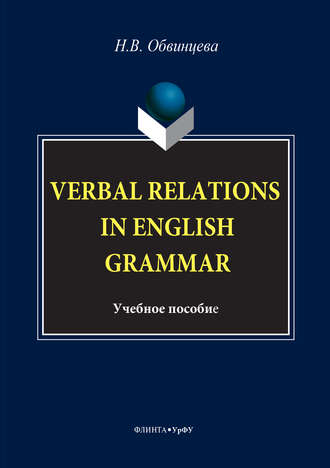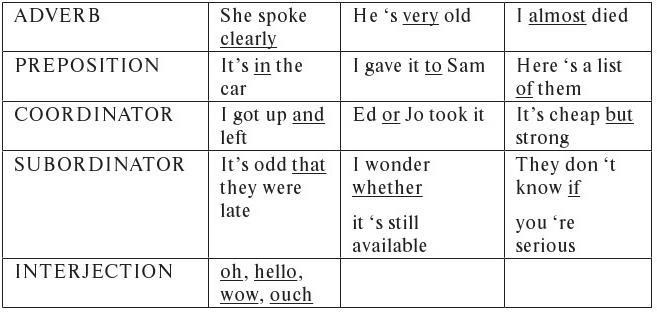
Полная версия
Verbal Relations in English Grammar

Н. В. Обвинцева
Verbal Relations in English Grammar
INTRODUCTION
Effective English language communication usually requires that each sentence contains a subject and a predicate. The subject is sometimes defined as a person, a place, or a thing. The predicate conveys an understanding of the action expressed, or the state of the subject.
Subject and predicate are the functions of the words or phrases, they are usually expressed by the parts of speech or phrases which they form. Function is a relational concept. For example: A lot of people have visited this event. When we say that a lot of people is subject we are describing the relation between it and have visited, or between it and the whole clause. It is the subject of the clause, not simply a subject. It is expressed by the Noun phrase. And the predicate in this sentence is expressed by the verb. [1]
The traditional term ‘parts of speech’ applies to what we call categories of words and lexemes.
We recognise nine categories [1] (Table 1).
Table 1


The two largest and most important categories are the noun and the verb, the two that we have already introduced. The most basic kind of clause contains at least one noun and one verb. The first six categories in list can function as the head of corresponding phrases (noun phrase, verb phrase, adjective phrase, etc.). The other three can’t [1].
The verb plays an essential role in English language. Its form and place bear the main information in the sentence. Verbs convey a sense of action or they convey the state of an entity. Verbs may also convey a sense of time. A verb is a kind of word (part of speech) that tells about an action or a state. It is the main part of a sentence: every sentence has a verb. In English, verbs are the only kind of word that changes to show past or present tense [1].
English has two main kinds of verbs: normal verbs (called lexical verbs) and auxiliary verbs. The difference between them is mainly in where they can go in a sentence. Some verbs are in both groups, but there are very few auxiliary verbs in English. There are also two kinds of auxiliary verbs: modal verbs and non-modal verbs. In this textbook we consider lexical verbs in all their categories and observe the place of them in the sentence.
Конец ознакомительного фрагмента.
Текст предоставлен ООО «ЛитРес».
Прочитайте эту книгу целиком, купив полную легальную версию на ЛитРес.
Безопасно оплатить книгу можно банковской картой Visa, MasterCard, Maestro, со счета мобильного телефона, с платежного терминала, в салоне МТС или Связной, через PayPal, WebMoney, Яндекс.Деньги, QIWI Кошелек, бонусными картами или другим удобным Вам способом.

